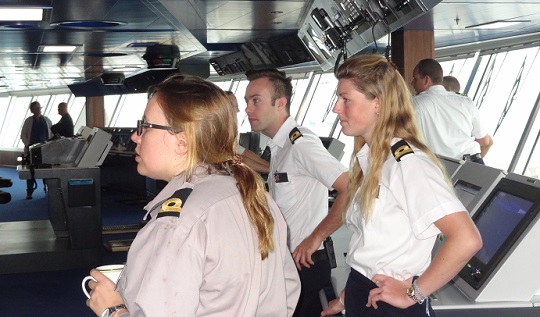
The Maritime and Coastguard Agency (MCA) has announced a plan to clear the backlog of cadets awaiting oral exam slots for their first attempt.
The examination system snarled up in 2022 due to pent up demand from cadets facing delays in obtaining their seagoing service. This was caused by challenges presented by the pandemic and led to the MCA being overwhelmed with requests for oral exams once the cadets completed their seagoing service in 2022. As a result, some cadets were unable to take paid employment at the end of their studies.
Complaints were also made regarding the MCA’s online exam booking system, which is set to automatically release new examination slots at 12 midnight.
The MCA will offer additional oral exam dates in January and February for those cadets with valid Notice of Eligibility (NOE) who have completed all the other requirements to qualify for an Officer of the Watch (OOW) Certificate of Competency (CoC) but have been unable to book an exam slot before April. This is now seen as a priority, MCA chief examiner Ajit Jacob said.
Priority will be given to those cadets who have been waiting longest to book their first attempt oral exam slot with no-one 'jumping the queue', he said.
Dates for the additional examinations will be confirmed once the backlog of students is fully understood. The MCA has asked training providers to share data.
Candidates can expect to receive one to two weeks' notice for extra exam dates.
Colleges are being encouraged to let students sit their oral exams before the end of phase 5 to avoid cadets missing out on work opportunities.
This year the MCA will pilot a two-part hybrid examination system. Candidates for the OOW exam will first undertake an online screening exam prior to an online oral exam.
All oral exams are shortly expected to be recorded and a robust complaints procedure introduced.
Members affected by any of these issues are encouraged to contact nautilus at cadets@nautilusint.org
Ask the expert – high risk areas
Q: What should I do if my vessel is scheduled to transit a high-risk area?
A: Cadets are onboard to train and obtain their Officer of the Watch (OOW) certification, not to enter high-risk areas.
Once qualified, seafarers can make an informed decision about whether the incentives given by the company and enhanced security measures onboard make accepting the job worth the potential danger.
For almost all the high-risk areas you have the right to refuse to sail, and repatriation should be organised by the company at their cost.
You can find a list of all the areas, their exact designation, and the rights that you therefore have on the ITF Seafarers website warlike and high risk areas information page.
Tags
